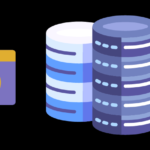Choosing the right programming language for business app development can be a daunting task, with numerous options available in the market. Python and C# .Net are two popular programming languages that businesses can choose from, each with its own strengths and limitations.
Key Takeaways
- Python and C# .Net are both viable options for business app development, with unique features and benefits.
- Python is known for its simplicity, readability, and extensive library support, while C# .Net has strong type safety and performance optimization capabilities.
- When selecting a language, businesses should consider factors such as project requirements, team expertise, and scalability.
- Real-world use cases and case studies can help businesses understand the strengths and limitations of each language in practical scenarios.
- Best practices for effective utilization of Python and C# .Net in business app development include coding standards, testing methodologies, and architectural principles.
Understanding Python and C# .Net
Python and C# .Net are both popular programming languages used for developing business applications. Python is an interpreted, high-level, general-purpose language that emphasizes code readability and simplicity, making it an excellent choice for beginners. In contrast, C# .Net is a compiled, object-oriented language that offers strong type safety and performance optimization, making it a favored choice for large-scale, enterprise-level projects.
| Language | Key Features | Areas of Application |
|---|---|---|
| Python | – Simple and easy-to-learn syntax – Extensive library support – Powers machine learning and data analysis applications | – Web development – Scientific computing – Education and research – Scripting and automation |
| C# .Net | – Strong type safety – Performance optimization – Seamless integration with Microsoft technologies | – Enterprise-level applications – Gaming and multimedia – Windows desktop and mobile development – Web applications |
Both languages have their strengths and areas of application in business app development, making them popular choices among developers. Understanding the unique features and benefits of each language can help businesses determine the right choice for their specific needs.
Advantages of Python in Business App Development
Python has become increasingly popular in the world of business app development due to its numerous advantages. Here are some of the key benefits of using Python:
| Advantage | Description |
|---|---|
| Readability and Simplicity | Python has a simple and easy-to-read syntax, which makes it a popular choice for beginners and experts alike. This feature enables developers to write code quickly and efficiently, resulting in faster development times and increased productivity. |
| Extensive Library Support | Python boasts a vast collection of open-source libraries and frameworks, including NumPy, Pandas, and Django, that make it easy to perform complex data analysis, machine learning, and web development tasks. These libraries allow developers to build powerful and scalable applications without having to reinvent the wheel. |
| Cross-Platform Compatibility | Python supports multiple operating systems, including Windows, macOS, and Linux, making it a versatile language for developing apps that can run on different platforms. |
| Large and Active Community | Python has a vast and thriving community of developers, which means that developers can easily find help, support, and resources when they need them. This community also contributes to the development of new libraries and modules that extend the functionality of Python even further. |
With these advantages, it’s no surprise that many businesses are turning to Python for their app development needs. However, it’s essential to consider the limitations of Python as well, which we will explore in the next section.
Drawbacks of Python in Business App Development
While Python is a popular language for app development, it also has its limitations in the context of business applications. Here are some of the drawbacks to consider:
| Drawback | Description |
|---|---|
| Slower Execution Speed | Python is an interpreted language, which means it runs slower than compiled languages like C# .Net. This can impact the performance of large, complex applications. |
| Weaker Support for Multithreading | Python’s Global Interpreter Lock (GIL) restricts the execution of multiple threads simultaneously, which can impede the performance of multi-threaded applications. |
Note: It’s worth noting that there are workarounds and optimizations available to mitigate some of these limitations, but they may require additional effort or expertise.
Despite these drawbacks, Python remains a viable and popular choice for business app development due to its simplicity, readability, and extensive library support. However, understanding its limitations is crucial to making informed decisions about your programming language choices.
Benefits of C# .Net in Business App Development

C# .Net is a powerful programming language that is widely used for developing business applications. It has several advantages over other programming languages, including:
| Advantages | Description |
|---|---|
| Strong Type Safety | C# .Net provides strong type safety through its static type system. This ensures that the code is free from common programming errors such as null pointer exceptions and type mismatch errors, leading to more stable and reliable applications. |
| Performance Optimization | C# .Net provides built-in support for performance optimization, including just-in-time (JIT) compilation and garbage collection. This helps developers to write code that runs faster and more efficiently. |
| Seamless Integration with Microsoft Technologies | C# .Net is the primary language used for developing applications on Microsoft’s .Net framework. It offers seamless integration with other Microsoft technologies such as Azure, SharePoint and Office, making it an excellent choice for businesses that rely on these technologies. |
C# .Net also has a large and active community, which has developed a wealth of third-party libraries and tools for building and deploying applications. This makes it easier for developers to find solutions to common problems and to stay up-to-date with the latest best practices in application development.
Overall, C# .Net is a reliable and versatile language that can help businesses to build powerful and scalable applications quickly and efficiently.
Limitations of C# .Net in Business App Development
C# .Net is a popular programming language for building business applications, but it has its limitations.
One of the main drawbacks of C# .Net is its complexity. While it offers advanced features and functionality, it also has a steep learning curve that can be challenging for new developers.
Another limitation is C# .Net’s limited cross-platform capability. While it can be used to develop applications for multiple operating systems, it is primarily designed for Windows-based systems and may not be the best choice for organizations that require cross-platform compatibility.
Additionally, C# .Net can be resource-intensive and may not be the best language for building applications that require optimal performance on low-powered devices or with limited resources.
Despite these limitations, C# .Net remains a popular choice for business app development due to its strong type safety, performance optimization, and seamless integration with Microsoft technologies.
Factors to Consider When Choosing Between Python and C# .Net
Choosing between Python and C# .Net requires a careful consideration of several factors. Here are some of the key points to keep in mind:
| Factor | Python | C# .Net |
|---|---|---|
| Project requirements | Python is best suited for small to medium-sized projects, whereas C# .Net is a better choice for larger enterprise applications. | C# .Net is designed for building large-scale, mission-critical applications that require high performance, scalability, and security. |
| Team expertise | Python has a simpler syntax and is easier to learn, making it a popular choice for startups and small businesses with limited development experience. | C# .Net requires more advanced knowledge and expertise, which may require experienced developers or additional training for new hires. |
| Community support | Python has a vast and active community, which ensures the availability of numerous libraries, frameworks, and tools that can significantly improve development efficiency. | C# .Net also has a strong, supportive community that provides regular updates and enhancements to the .Net framework. |
| Scalability | Python is highly scalable and can be used to build large-scale applications with distributed architectures, making it a favorite for machine learning, data science, and AI applications. | C# .Net offers high scalability, exceptional performance, and reliability, making it ideal for building complex enterprise systems. |
Overall, the choice between Python and C# .Net comes down to the specific needs and requirements of your business. Consider the scale and complexity of the project, the expertise of your development team, and the long-term maintenance and support that each programming language requires.
Use Cases: Python vs C# .Net in Real Business Scenarios
Let’s take a closer look at some real-life examples of Python and C# .Net being used in business app development.
| Python | C# .Net |
|---|---|
Another example is YouTube, which uses Python for its front-end user interface and back-end systems, including its video transcoding and uploading frameworks. |
C# .Net is also used in building mobile apps for iOS and Android platforms, thanks to its Xamarin toolset, which allows developers to write cross-platform code in C# .Net and deploy it on multiple devices. |
Overall, both Python and C# .Net have proven their value in various business app development scenarios.
Comparison: Python vs C# .Net in Business App Development
Choosing between Python and C# .Net for business app development requires a careful consideration of multiple factors, ranging from project requirements and team skills to ecosystem and community support.
To help you make an informed decision, we have compared the two programming languages based on several criteria:
| Criteria | Python | C# .Net |
|---|---|---|
Performance | Slower than C# .Net due to its interpreted nature and dynamic typing. | Faster than Python due to its compiled nature and static typing. Can achieve better performance with the use of .Net Native and Ahead-of-Time (AOT) compilation. |
Development speed | Python’s simplicity, readability, and extensive library support make it faster to develop and prototype applications. Also, Python’s dynamic nature allows for a more flexible and agile development process. | C# .Net requires more setup and configuration, but its strong type safety and integrated development environment (IDE) can improve productivity and code consistency. Also, C# .Net’s static nature enables early error detection and better code maintenance. |
Community support | Python has a vibrant and active community of developers, offering a vast array of libraries, frameworks, and tools for various purposes. This community-driven approach also fosters open-source development and knowledge sharing. | C# .Net is backed by Microsoft and has a large community of developers, providing extensive documentation, tutorials, and training resources. Also, C# .Net’s integration with Microsoft technologies can facilitate enterprise-level development and support. |
Ecosystem | Python’s ecosystem is vast and diverse, encompassing a wide range of domains, including machine learning, data analysis, web development, gaming, and more. | C# .Net’s ecosystem is primarily geared towards Windows and Microsoft technologies, but it also supports cross-platform development with .Net Core and Xamarin. |
Long-term maintenance | Python’s dynamic nature and untyped variables can make it harder to maintain and scale applications over time. Also, the lack of standardized packaging and dependency management can lead to versioning conflicts and compatibility issues. | C# .Net’s static nature and typed variables can enhance code readability and maintainability, making it easier to refactor and extend applications. Also, the use of NuGet package manager and strong versioning control can alleviate dependency and compatibility issues. |
Ultimately, the choice between Python and C# .Net depends on various factors, including the nature of the project, the expertise of the development team, the available resources, and the long-term goals of the business. It is recommended to evaluate the pros and cons of each language against your specific needs and constraints before making a decision.
Best Practices for Business App Development with Python and C# .Net

Developing robust and scalable business apps with Python and C# .Net requires adherence to industry-specific best practices and coding standards. Here are some recommended practices to follow:
Python Best Practices
1. Follow PEP Guidelines: Adhere to Python Enhancement Proposal (PEP) guidelines to ensure that your code is standardized, readable, and easily maintainable.
| PEP Guidelines | Description |
|---|---|
| PEP 8 | Coding conventions for Python code. |
| PEP 20 | The Zen of Python: principles guiding Python design and philosophy. |
2. Use Virtual Environments: Isolate your Python projects and dependencies using virtual environments to avoid dependency clashes and ensure reproducibility across different environments.
3. Unit Testing: Test your code using unit tests to ensure robustness and maintainability of your application.
4. Code Documentation: Write clear and concise documentation for your code to ensure that it is easily understood and maintained by other developers.
C# .Net Best Practices
1. Follow Microsoft Guidelines: Adhere to Microsoft’s coding best practices to ensure consistency and maintainability of your code.
| Microsoft Guidelines | Description |
|---|---|
| C# Coding Guidelines | Coding conventions for C# code. |
| .Net Core Coding Guidelines | Coding conventions for .Net Core development. |
2. Use Design Patterns: Use design patterns to ensure that your code is modular, reusable, and easily maintainable.
3. Unit Testing: Test your code using unit tests to ensure robustness and maintainability of your application.
4. Code Documentation: Write clear and concise documentation for your code to ensure that it is easily understood and maintained by other developers.
By following these best practices, businesses can develop high-quality applications that meet their requirements and deliver value to their customers.
Conclusion

Choosing the right programming language is critical to the success of any business app development project. Based on our analysis, Python and C# .Net offer unique advantages and limitations that businesses must take into account while making a decision.
Python’s simplicity, readability, and extensive library support make it an ideal choice for businesses looking to develop apps quickly and efficiently. However, its slower execution speed and weaker support for multithreading may make it unsuitable for certain projects.
On the other hand, C# .Net’s strong type safety, performance optimization, and seamless integration with Microsoft technologies make it a powerful option for complex business app development projects. However, its complexity, learning curve, and limited cross-platform capability may deter some businesses.
Ultimately, the choice of programming language depends on various factors such as the project requirements, team expertise, and long-term maintenance considerations. It is recommended that businesses thoroughly evaluate their needs before deciding between Python and C# .Net.
Lydia is a seasoned technical author, well-versed in the intricacies of software development and a dedicated practitioner of Python. With a career spanning 16 years, Lydia has made significant contributions as a programmer and scrum master at renowned companies such as Thompsons, Deloit, and The GAP, where they have been instrumental in delivering successful projects.
A proud alumnus of Duke University, Lydia pursued a degree in Computer Science, solidifying their academic foundation. At Duke, they gained a comprehensive understanding of computer systems, algorithms, and programming languages, which paved the way for their career in the ever-evolving field of software development.
As a technical author, Lydia remains committed to fostering knowledge sharing and promoting the growth of the computer science community. Their dedication to Python development, coupled with their expertise as a programmer and scrum master, positions them as a trusted source of guidance and insight. Through their publications and engagements, Lydia continues to inspire and empower fellow technologists, leaving an indelible mark on the world of scientific computer science.


![15 Most Contributed Python Projects on GitHub [Stats]](https://hirepythondeveloper.com/wp-content/uploads/2024/03/15-Most-Contributed-Python-Projects-on-GitHub-Stats-1-150x150.png)




